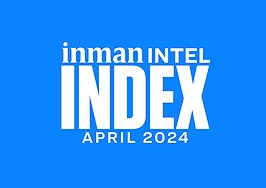- Prequalification and approval are not the same thing.
- Overpaying for a property can compromise the appraisal amount.
- Putting charges on credit cards after approval but before closing is a bad idea.
It’s a heady feeling to receive a formal letter advising you that you’ve been prequalified for more money than you’ve ever seen in your life.
However, many homebuyers forget the “pre” part of pre-approval. Much can happen between prequalification and settlement to make that letter worth less than the paper on which it’s written.
Here are three of the most frequent mistakes buyers make that can cost them their financing and the house of their dreams.
1. Confusing pre-qualification amounts with loan commitments.
In the bad old days during the housing boom, “no doc” loans (loans approved with little or no income documentation) came in second only to “pulse loans” (if you had a pulse, you got a loan) as leading causes of defaults and foreclosures.
Today, income documentation is taken extremely seriously by lenders.
However, many buyers don’t understand the differences between pre-qualifications and pre-approvals when it comes to income documentation.
Lenders will check your credit but will rely on estimates from borrowers for pre-qual letters, and they don’t require documentation. A pre-qualified amount is not a sure thing; it’s just the amount for which you might expect to be approved.
For a pre-approval, lenders will ask for recent pay stubs and sometimes W-2s for the most recent one or two years. They may call employers directly to verify income and employment status.
From self-employed workers or unemployed applicants, they will require signed tax returns, access to bank accounts and brokerage statements, and divorce decrees if alimony is involved, in order to confirm assets.
However, even a pre-approval is conditional.
Credit, debt and income can change during the months between when a pre-approval is granted, and a buyer actually applies for a mortgage.
Lenders won’t issue a loan commitment until it has approved both you and the house in question. This means the home should be appraised at or above the sales price.
A lot can change during that period, and lenders will ask for updated income documentation.
If the documentation differs significantly from the original estimates in a pre-qual due to unemployment, or if income declined in the time between a pre-approval and the lender’s loan commitment, a borrower may find he can’t afford to buy the home he wants.
2. Overpaying and triggering a low appraisal
If you ever wondered why anyone in their right mind would pay more for a home than its worth, you’ve probably lived through a bidding war in a hot real estate market.
Emotions sometimes win out over reason and borrowers commit for more than a home is worth.
In fairness, the only way to find out what a house is worth is to have an appraisal done, which is not possible when you are house hunting. Instead, buyers rely on notoriously inaccurate AVMs on popular websites.
Overpaying for a home, especially in a hot market, is an invitation for a low appraisal.
Comps used by appraisers to value a home for a mortgage may have a hard time keeping up with rising prices in a hot market. They are almost certain to come in lower than an above-market offer in a multi-bid situation.
If the buyer can’t make up the difference on a low appraisal with cash and the seller won’t budge on price, the buyer and their agent can kiss the house of their dreams good-bye.
In July, appraisal issues were responsible for killing 17 percent of all terminated contracts.
3. Pulling out the plastic before closing.
Today most buyers, especially first-timers, work hard for many months to save for a down payment and build their credit scores.
Once they’ve received a loan commitment from a lender, it’s easy to assume the worst is over. Moving and decorating are expensive, and the new home will require a makeover before moving in. As the days until closing count down, pressure grows to break out the plastic.
Bad idea! A mortgage isn’t final until the settlement papers are signed.
More than one lender has been known to run a last minute credit check the night before closing, only to discover that the customer’s debt-to-income score has soared and the credit rating has fallen.
Steve Cook is editor and co-publisher of Real Estate Economy Watch. Visit him on LinkedIn and Facebook.












